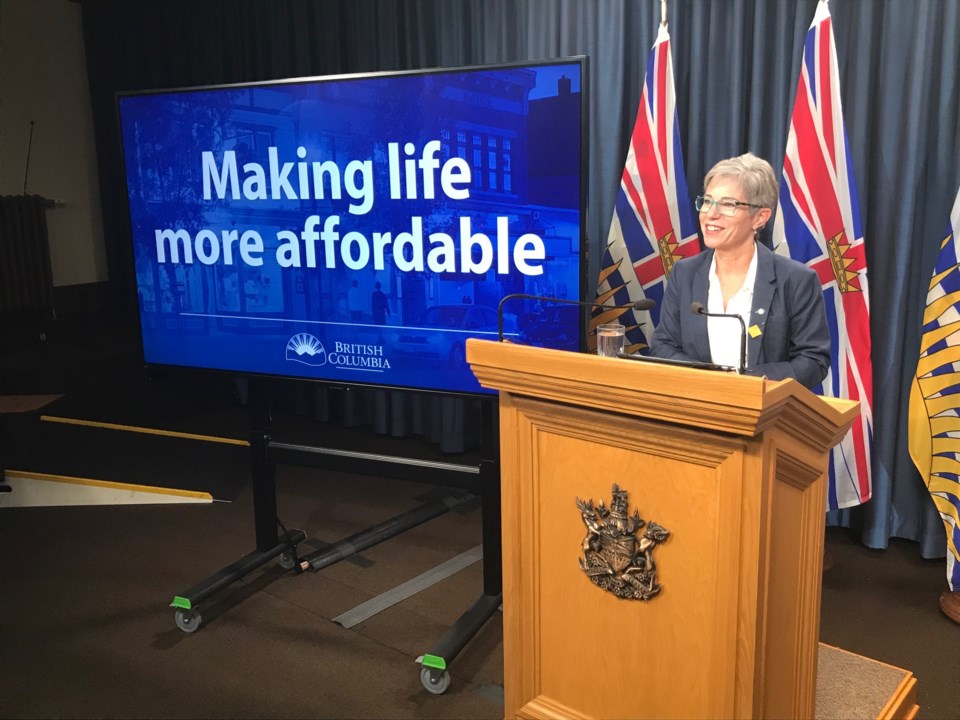B.C. Finance Minister Selina Robinson on July 28 said that the province racked up a $5.5 billion deficit in the 2020-21 fiscal year – $2.7 billion less than had been projected.
Provincial expenses were $8.6 billion more than the previous year, with increased spending on healthcare, education and social services, as well as what Robinson called "community supports." While government revenue increased by $3.5 billion, COVID-19-related support and recovery-program spending reached $10.1 billion.
"Financial statements look significantly better than our worst-case-scenario projection," Robinson told media.
She attributed the higher revenue to some sectors proving to be more resilient than expected during the pandemic, federal contributions for COVID-19 support and additional savings, and higher earnings, at ICBC.
"We certainly have seen an increase in forestry," Robinson said. "Lumber prices have been very good, and certainly that wasn't expected."
Aside from the operational budget, is the capital-spending budget.
In the 2020-21 fiscal year, there was $5.4 billion in taxpayer-supported infrastructure spending on hospitals, schools, post-secondary facilities, clean-infrastructure projects, transit and roads, according to the government.
This includes:
• $1.848 billion to build, upgrade and modernize K-12 and post-secondary schools;
• $1.392 billion in B.C.'s transportation network; and
• $1.162 billion on key health facilities.
Total capital spending was $1.7 billion below the projection for the 2020-21 fiscal year due to what the government called project-scheduling changes.
The 2020-21 deficit pushed B.C.'s debt to $87.1 billion, as of March 31. That is a $14.9 billion increase from a year earlier.
The projected deficit for the the current 2021-22 fiscal year remains $9.7 billion, which would be the largest deficit in B.C. history.
"We said, in Budget 2021, that we anticipate deficits through the fiscal plan, over the next number of years," Robinson said.
"It will take time to get back to balance, and that's our commitment, is to get back to balance."
Multiple credit agencies have downgraded B.C.'s credit rating, but Robinson noted that this was not the case with all agencies, as Moody's kept its credit rating for B.C. at AAA.
S&P Global Ratings downgraded the province's credit rating from a top AAA rating to AA+. That move came after Fitch Ratings downgraded the province’s credit rating to AA+ from AAA.
More to come ...



